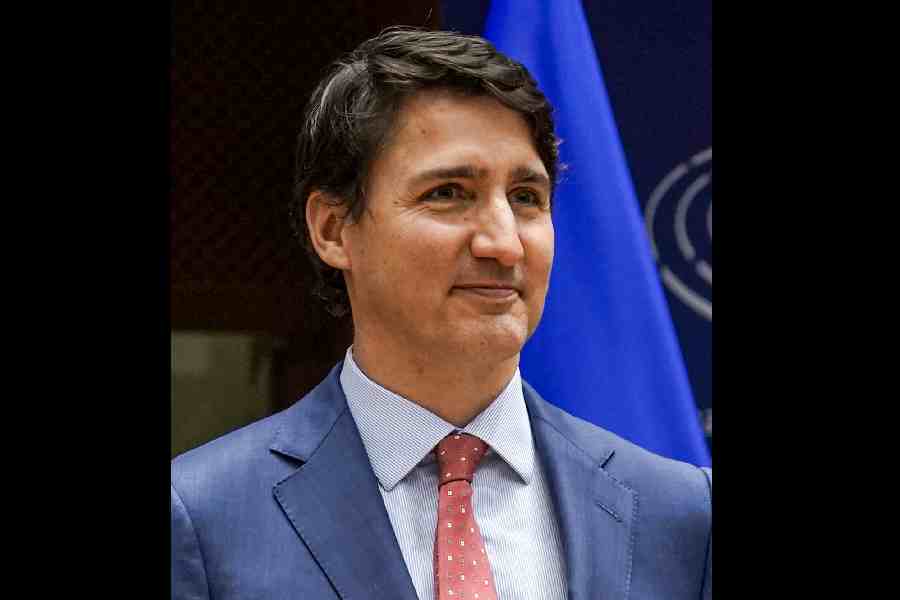Sri Lanka has summoned the Canadian High Commissioner here and registered a strong protest over Canadian Prime Minister Justin Trudeau's "Tamil Genocide" comment on the 14th anniversary of the end of the brutal civil war in the island nation.
The bitterly-fought conflict, which began in 1983, came to an end on May 18, 2009, with Sri Lanka's military killing the supremo of Liberation Tigers of Tamil Eelam (LTTE) Velupillai Prabakaran.
LTTE fought an armed conflict for a separate homeland for the minority Tamils.
On Thursday, Canadian Prime Minister Trudeau said tens of thousands of Tamils lost their lives, including at the massacre in Mullivaikal, with many more missing, injured, or displaced.
“Our thoughts are with the victims, survivors, and their loved ones, who continue to live with the pain caused by this senseless violence,” Trudeau said.
“The stories of Tamil-Canadians affected by the conflict – including many I have met over the years in communities across the country – serve as an enduring reminder that human rights, peace, and democracy cannot be taken for granted," Trudeau said.
“That’s why Parliament last year unanimously adopted the motion to make May 18 Tamil Genocide Remembrance Day. Canada will not stop advocating for the rights of the victims and survivors of this conflict, as well as for all in Sri Lanka who continue to face hardship," he added.
Sri Lanka’s Ministry of Foreign Affairs rejected Trudeau’s statements, asserting that they contained outrageous claims of genocide relating to past conflicts in the country.
Subsequently, the foreign ministry summoned Canadian High Commissioner in Colombo Eric Walsh and registered a strong protest over Trudeau’s remarks.
“Such irresponsible and polarising pronouncements by the leader of a nation breeds disharmony and hatred both in Canada and Sri Lanka, instead of promoting peace and reconciliation,” the foreign ministry said in a statement on Friday.
“Sri Lanka urges Canada and its leaders to refrain from making pronouncements from Canada which promote hatred, misinformation and extremist views and to cease its unhelpful focus on Sri Lanka based on distorted facts. This runs contrary to the Canadian Prime Minister’s stated objective of “safeguarding human rights across the world," it added.
Successive regimes in Sri Lanka have outrightly rejected the alleged war crimes against unarmed civilians in the final phase of the 26-year civil war.
Sri Lanka on Friday commemorated the War Hero’s Day, marking the 14th anniversary of the military’s triumph over the LTTE.
President Ranil Wickremesinghe, Prime Minister Dinesh Gunawardena, the main opposition leader Sajith Premadasa, and the military top brass paid floral tributes to the fallen soldiers at the event.
Every year on May 18, while the armed forces celebrate victory, the Sri Lankan Tamils mourn their dead during the final phase of the conflict.
The Tamils allege that thousands were massacred during the final stages of the war that ended in 2009, a charge the Sri Lankan Army denies.
The Tamils have said that the government failed to deliver justice to the victims of the brutal civil war.
At least 40,000 Tamil civilians may have been killed in just the final months of the civil war, according to a UN report.
Sri Lanka has been subject to the UN human rights council resolutions since 2013, calling for accountability through international investigations of the incidents of alleged war crimes.
Wickremesinghe, who took over as the Sri Lankan president last year amidst the unprecedented economic crisis and political turmoil, earlier underlined the need to fully implement the 13th Amendment to the Constitution to grant political autonomy to the minority Tamils in the country.
The 13A provides for the devolution of power to the Tamil community in Sri Lanka.
India has been pressing Sri Lanka to implement the 13A which was brought in after the Indo-Sri Lankan agreement of 1987.
Except for the headline, this story has not been edited by The Telegraph Online staff and has been published from a syndicated feed.











